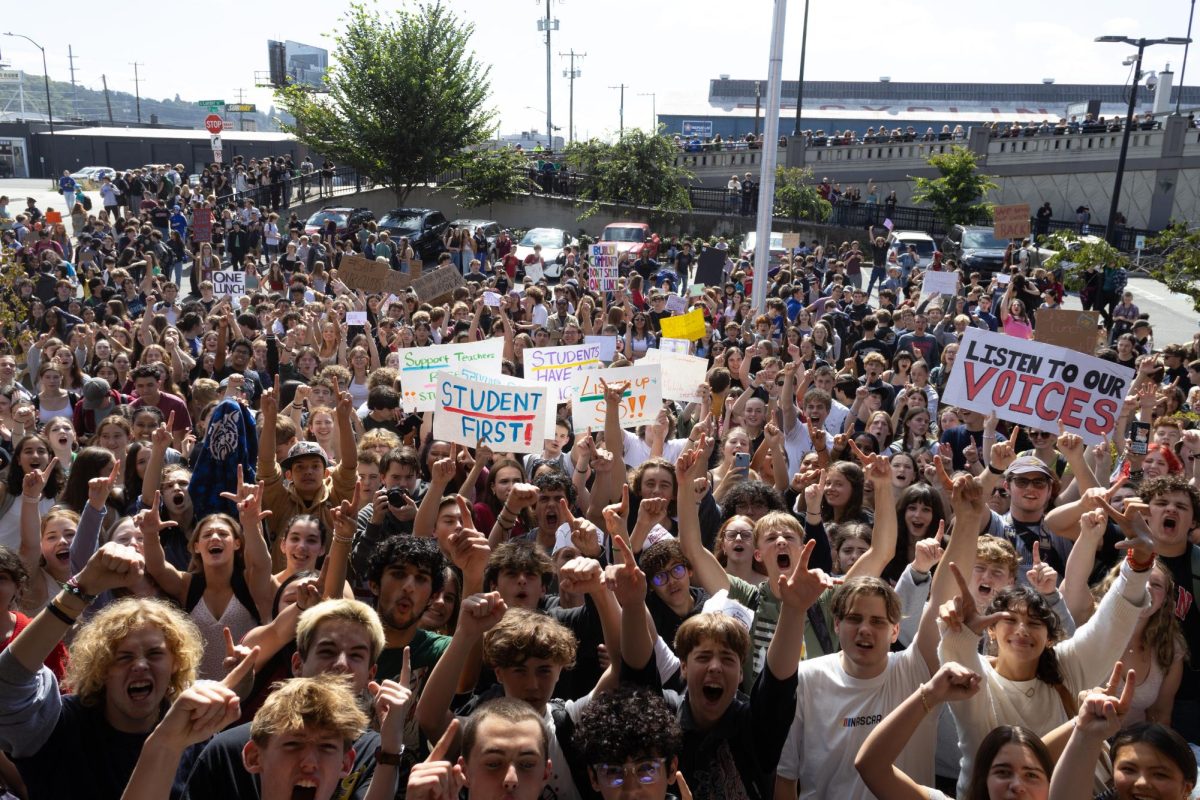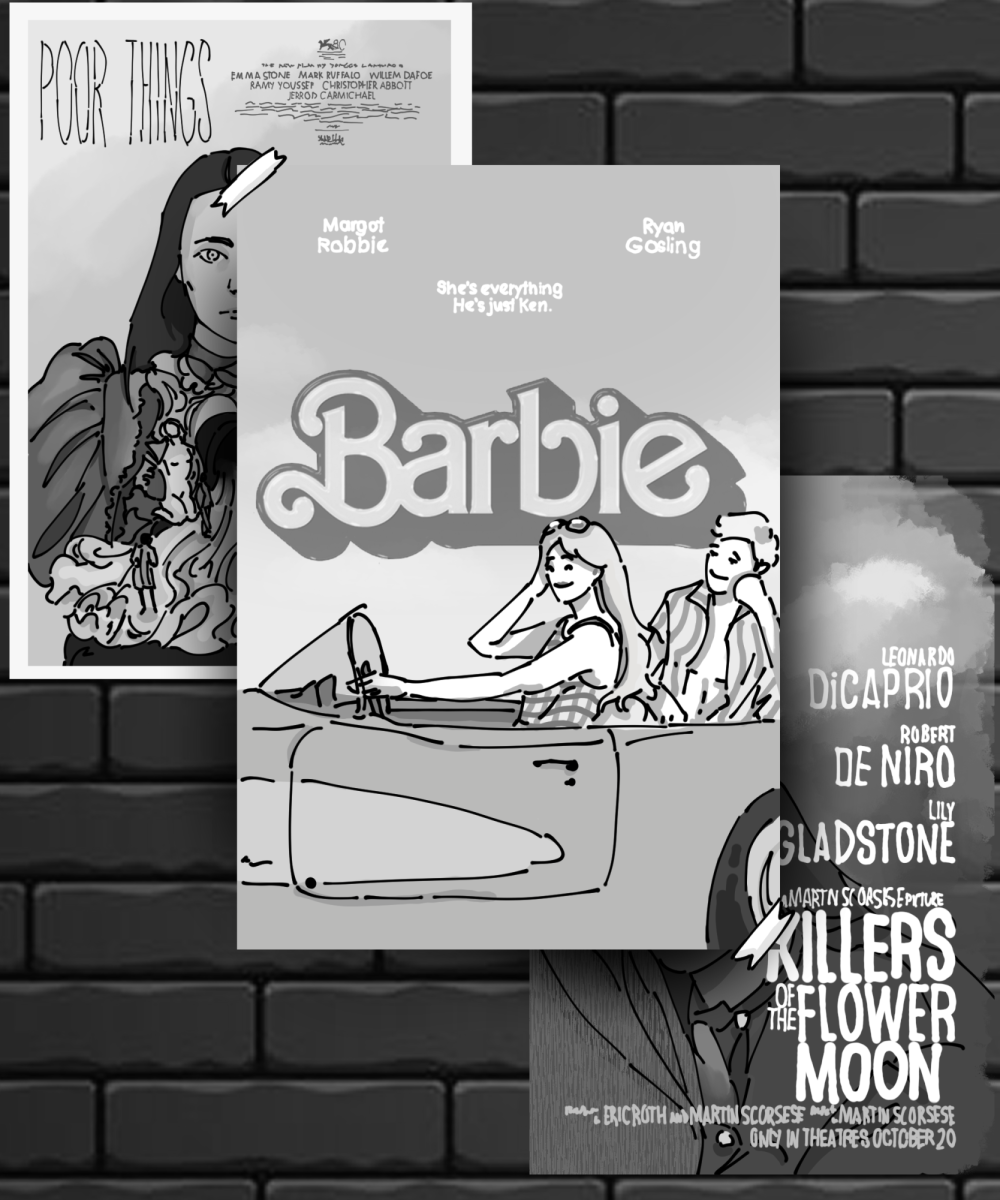The Oscars are coming up on March 10 and it seems the blockbuster film “Barbie” has taken over the headlines following the nominations list release on January 23.
Social media warriors led an outcry in support of actress and producer Margot Robbie and director Greta Gerwig who fell short of nominations for best lead actress and director categories, respectively.
The major complaint from TikTok fanatics derived from seeing Ryan Gosling, who played “Barbie’s” in comparison inconsequential counterpart Ken, nominated for actor in a supporting role. As well as his featured song, “I’m Just Ken,” got nominated for best original song. Fans argued the academy’s recognition of Gosling over Robbie and Gerwig was a further representation of patriarchy on which the film offers commentary.
We even saw fellow actors like John Stamos come to Instagram to offer compliments to the two female pioneers’ work and success, writing “this one goes out to Greta Gerwig and Margot Robbie who crafted a film that was both a critical success and a cultural phenomenon.”
On the contrary, we also saw – on a smaller scale – social media users combating the outrage, including conservative political commentator Ben Shapiro on his Daily Wire podcast. In his typical, sometimes controversial sarcasm, he highlighted his love for the film he considers `“overrated trash” and the laughable “irony” that was “the power of the patriarchy even overcoming Barbie itself.”
In the midst of contradicting opinions, I find both sides to be looking at the event with an overtly slanted perspective.
When I saw “Barbie,” I was skeptical of the praise it received from the teenage girls like myself on social media who were in awe of its life-changing effects.
In short, my skepticism proved itself correct. In terms of the claimed revolutionary commentary on the patriarchy, the film I saw was better described as Feminism-101.
A great film to exist, especially for children to watch, refocusing the Barbie fandom on the positives the franchise has for young girls and not the body-positivity and objectification scandal by which the child’s toy has been surrounded.
That being said, the base idea of feminism it presented was nothing I hadn’t seen or heard before, and while I cannot speak for the rest of the film’s audience, I can only hope and assume from my Seattle-based perspective that the general public has had prior grasp on these ideas of feminism.
And although I see the irony in Ken being nominated and Barbie not, especially since Robbie’s performance notably added a lot of depth to the film, I saw her comedic effect in “The Wolf of Wall Street” and her range from “Bombshell” to “Babylon” as better representations of her aptitude and expertise.
As for Gerwig’s lack of a director nomination, it was no example of Gerwig’s best work either, which, in my opinion, would be her “Little Women” which is considered a very strong book-to-film adaptation, however she was also recognized for her 2017 film “Lady Bird” with a best director nomination.
She was recognized for the content of “Barbie,” nominated for best writing for adapted screenplay, and the film’s overall success through its best picture nomination. I would argue that these nominations cover her major success. In watching the film, I did not see an ingenious directorial creation. What I did see, though, was a strong redirection of Barbie’s message and a smart mix of comedic and meaningful screenwrite.
Overall, “Barbie” received a total of 8 nominations following “Oppenheimer,” “Poor Things” and “Killers of the Flower Moon” at fourth place for the highest nomination count.
Despite my own thoughts towards “Barbie,” I think a more important point to be made is that of this years’ Oscars nominations, these so-called snubs should not be taking up all the talking space.
Robbie fell short of the nomination for lead actress not by way of Ryan Gosling but by other female actresses and important, relevant films.
We see the successful Emma Stone taking home yet another Oscar nomination following her La La Land win in 2016 for the role she played in the recent release, “Poor Things,” in which the young female protagonist is brought back to life by an unorthodox scientist. Freed from the restraints of her times, she runs across the country with a lawyer, played by Mark Ruffalo, experiences the world with more choice and becomes devoted to her stand for equality.
Of the films to be recognized above Barbie, I have no complaints against “Poor Things,” which is arguably a more complex and new commentary on feminism and the patriarchy.
Another actress nominated for best lead actress was Lily Gladstone for her role in “Killers of the Flower Moon,” whose nomination makes history as the first Native American acting nominee. Not to mention America Ferrera recognized in the best supporting actress category alongside two other women of color, Danielle Brooks and Da-Vine Joy Randolph.
But instead of talking about these women, these nominations, we are stuck on one film. Two women weren’t nominated and the media is claiming a massive attack on feminism while we disregard the success and importance of other women who are just as talented and deserving.
This social media outrage wreaking havoc on the academy forgets the entire idea of feminism, women having equal opportunity, which must include all women. If Margot Robbie’s name is the only one on the headlines, we are thereby participating in the erasure of other women’s success. Specifically women of color who have fought for decades to be equally supported in the feminist fight which historically only recognized the white female narrative.
To widen the discussion would be a step towards intersectional feminism, feminism that acknowledges the struggles and triumphs of every woman. In the grand scheme of things, these so-called Barbie ‘snubs’ are a small part of the big picture that the Oscars nominations have set forward.
























